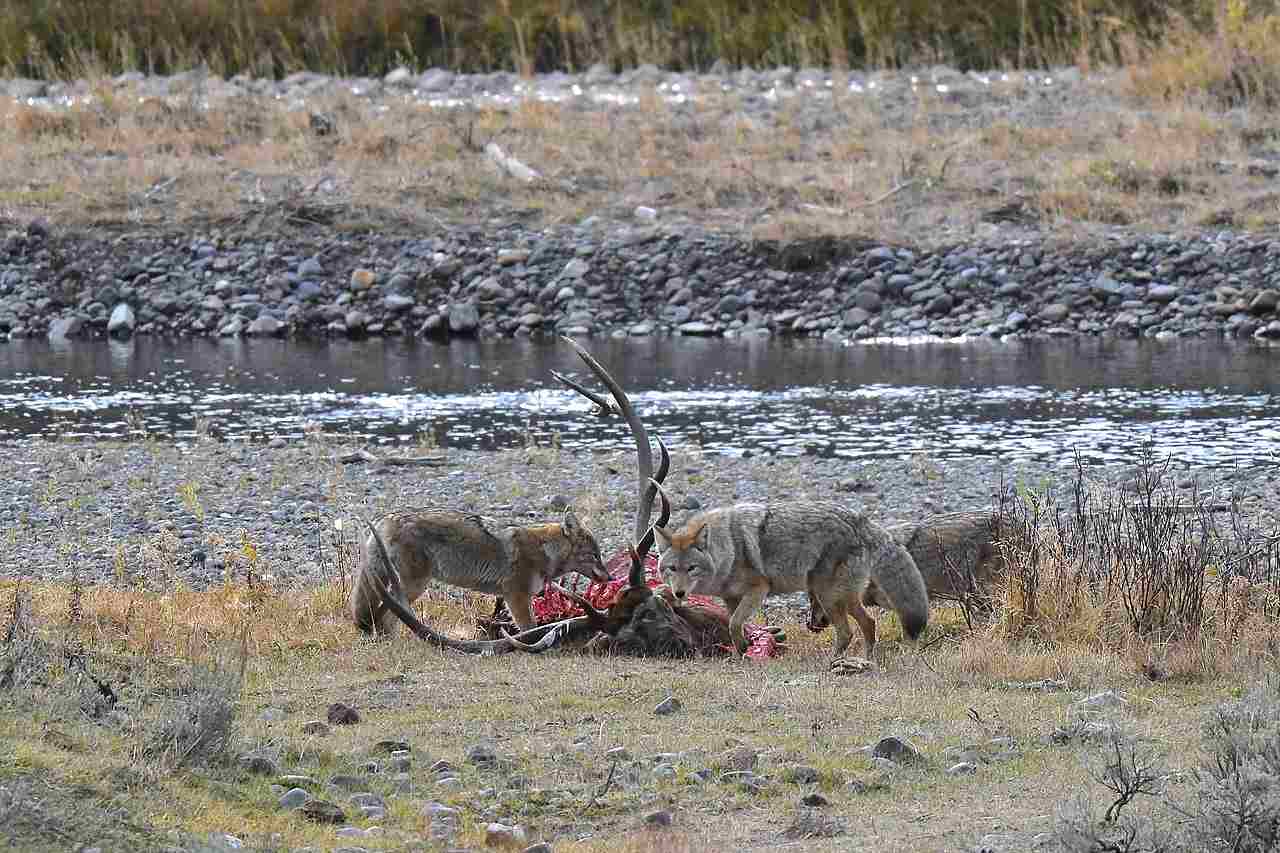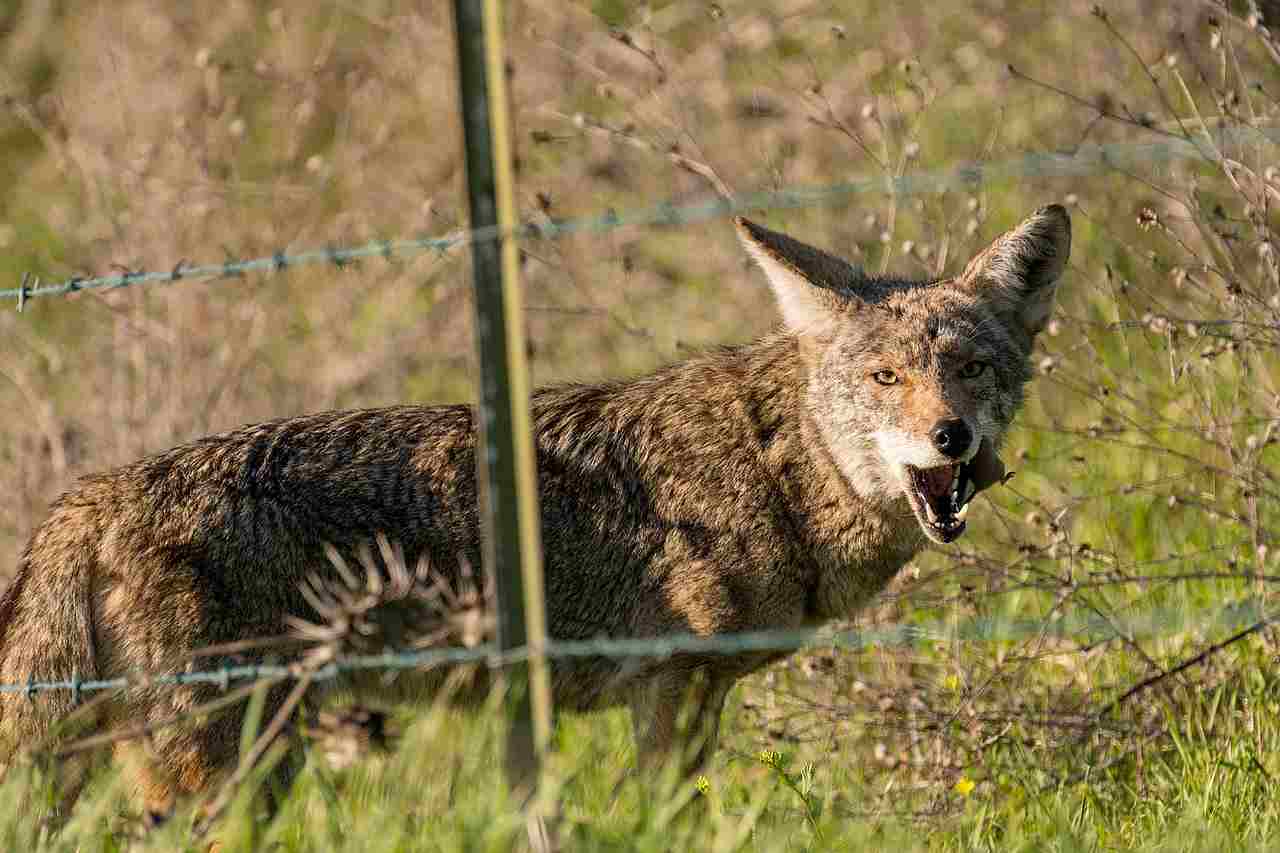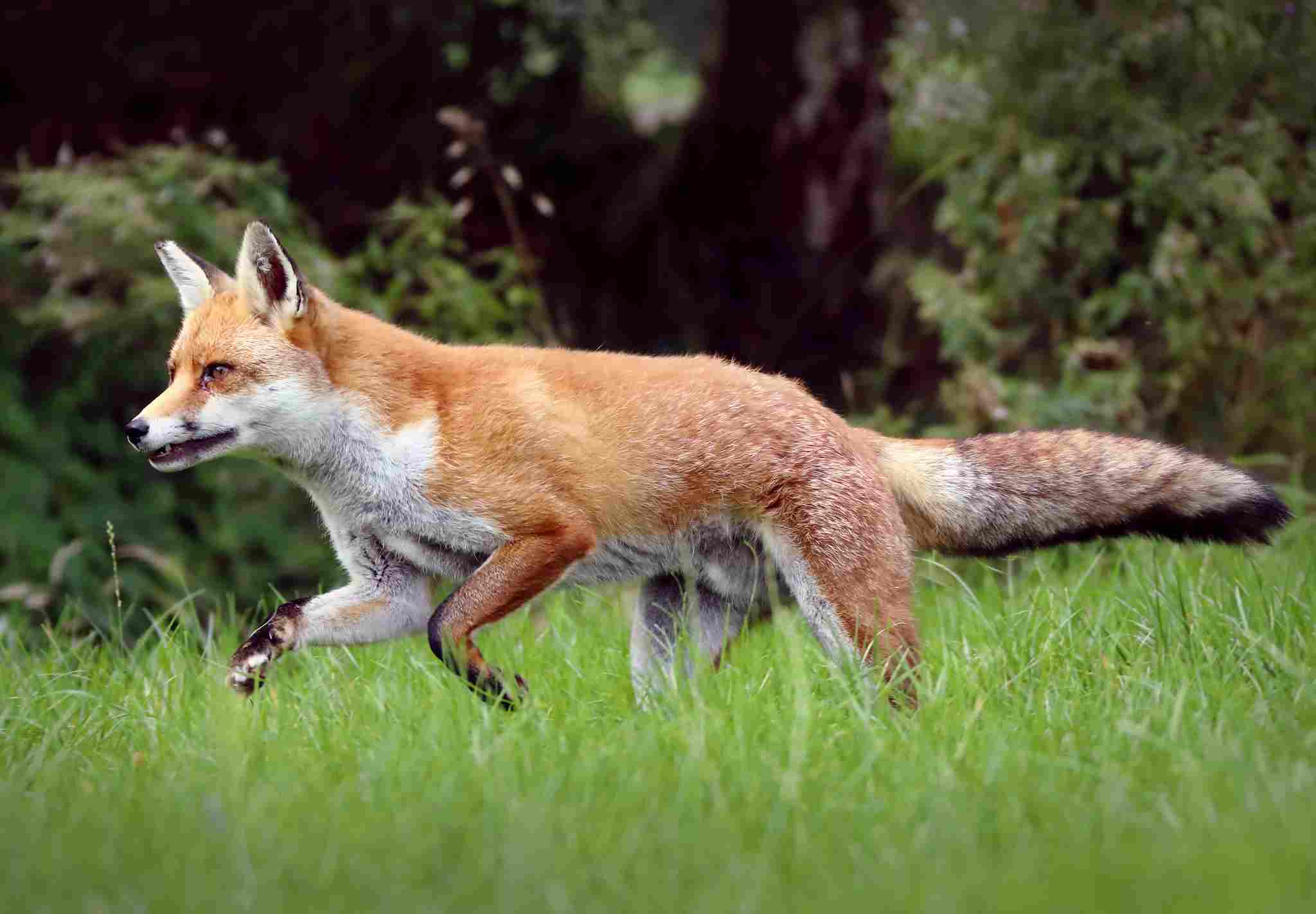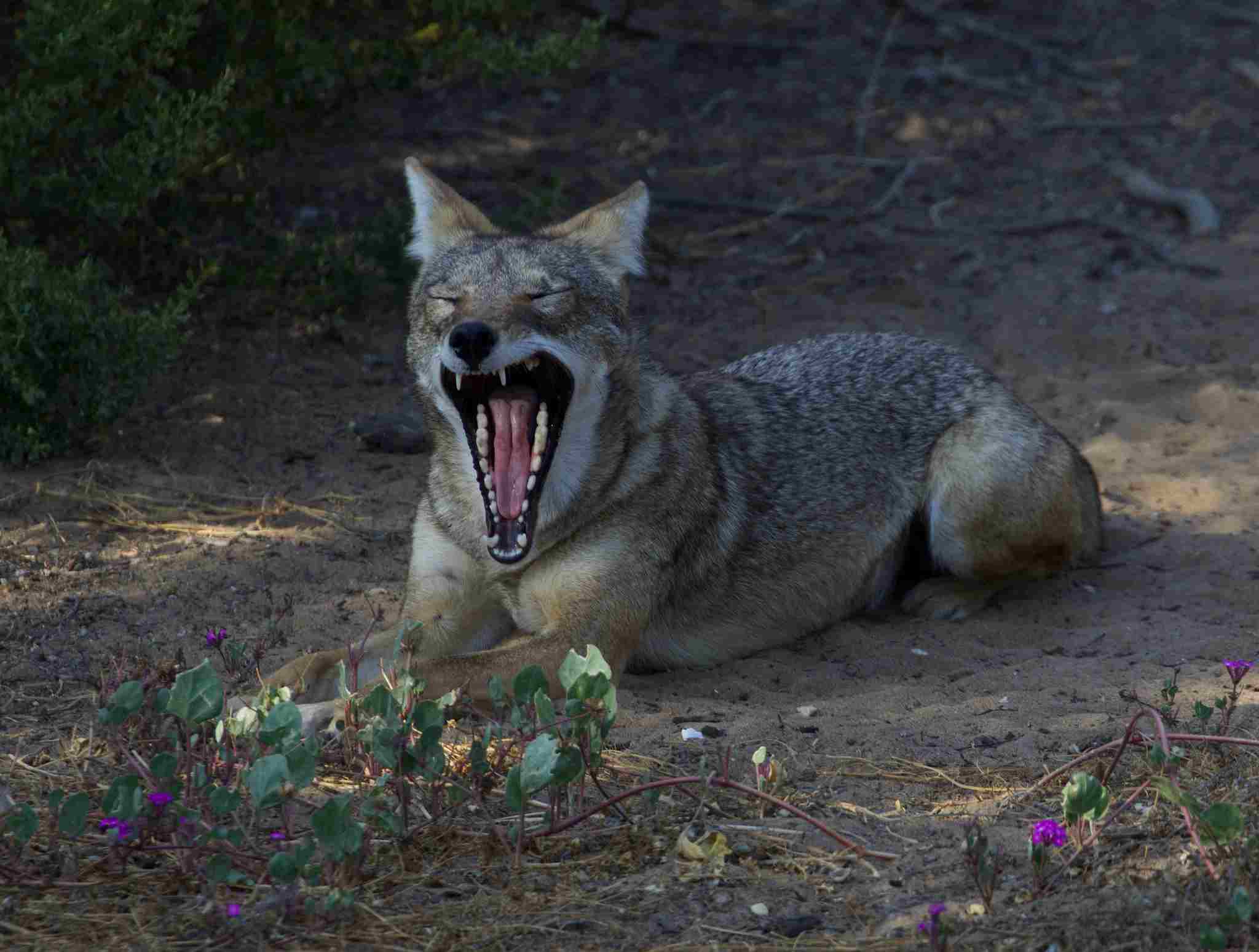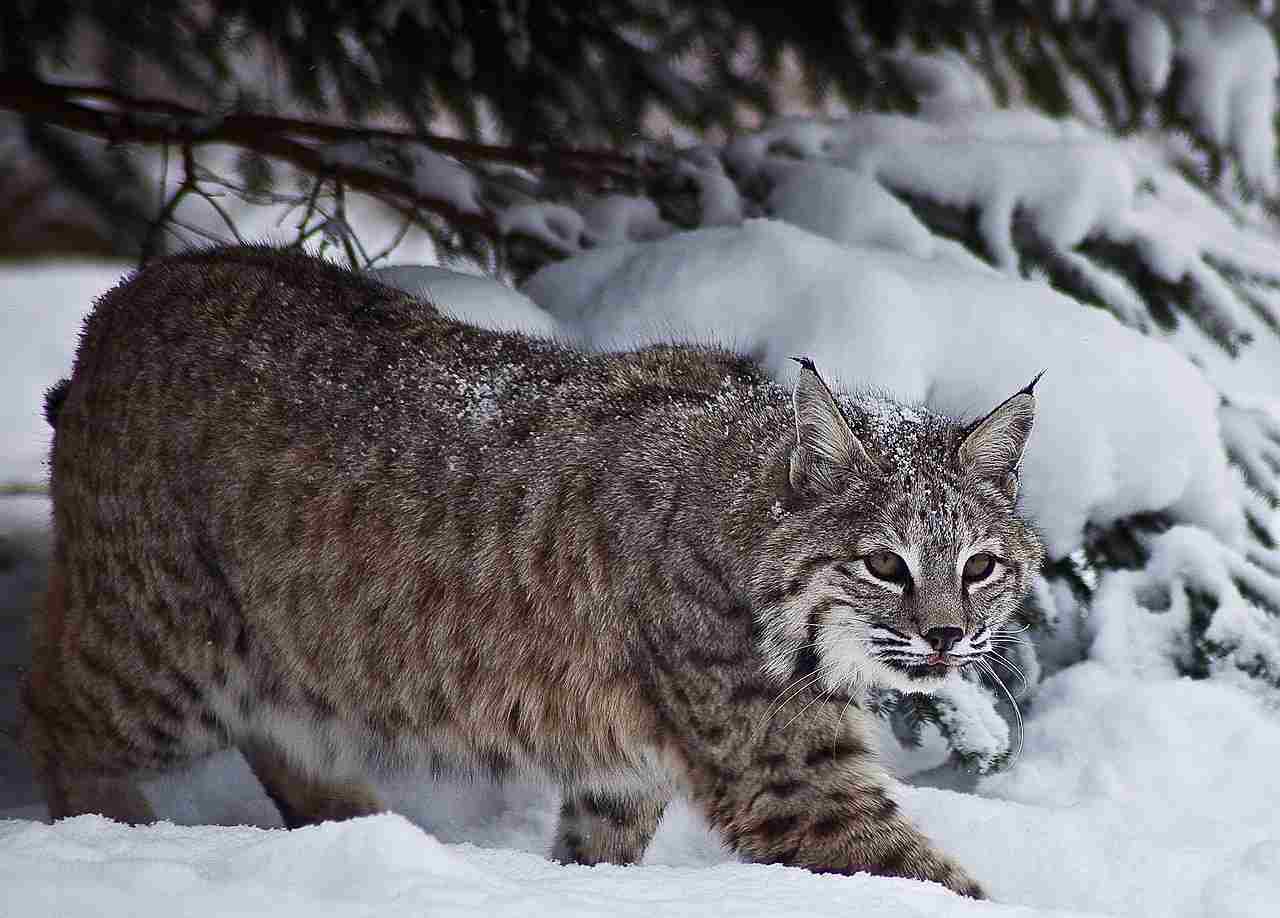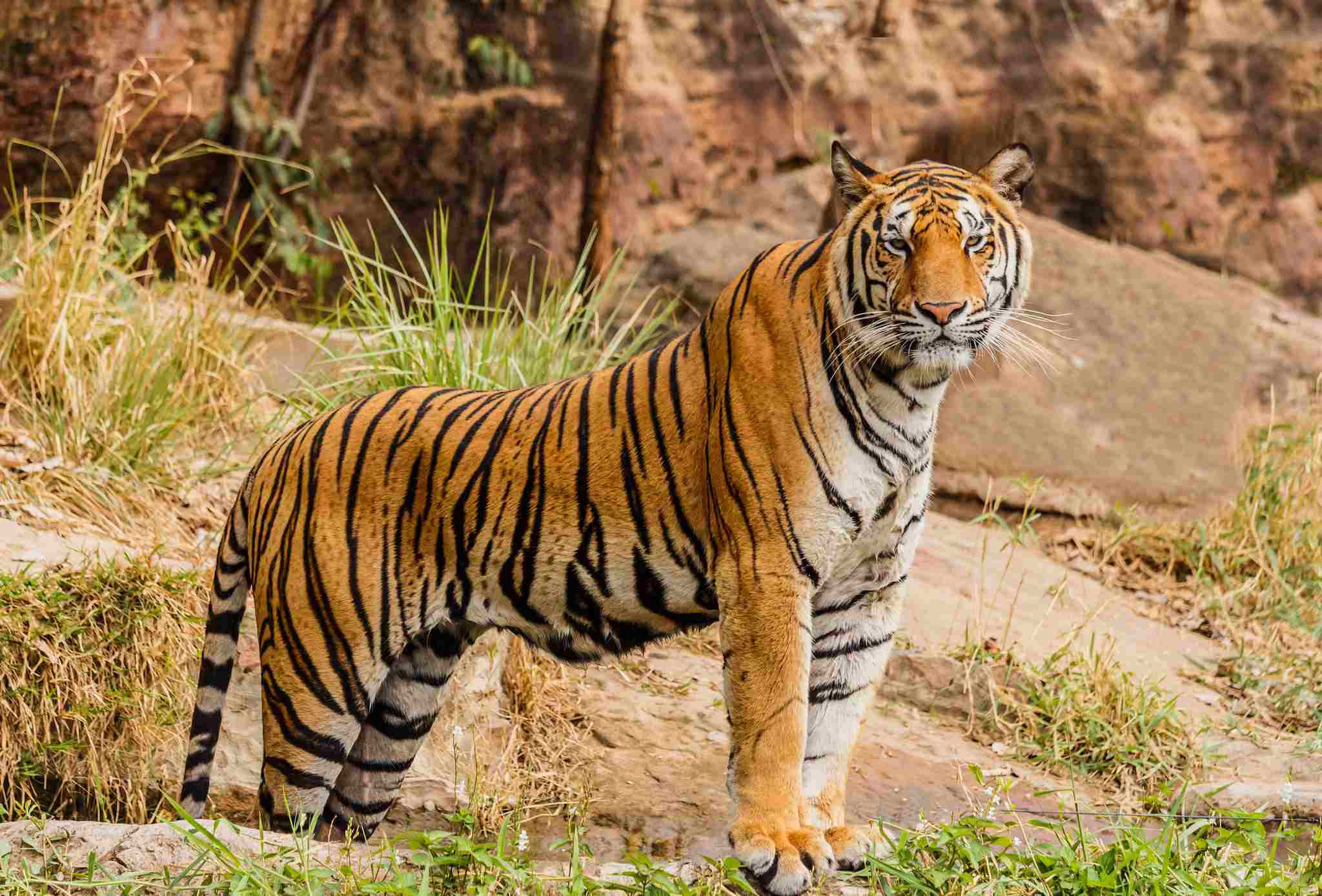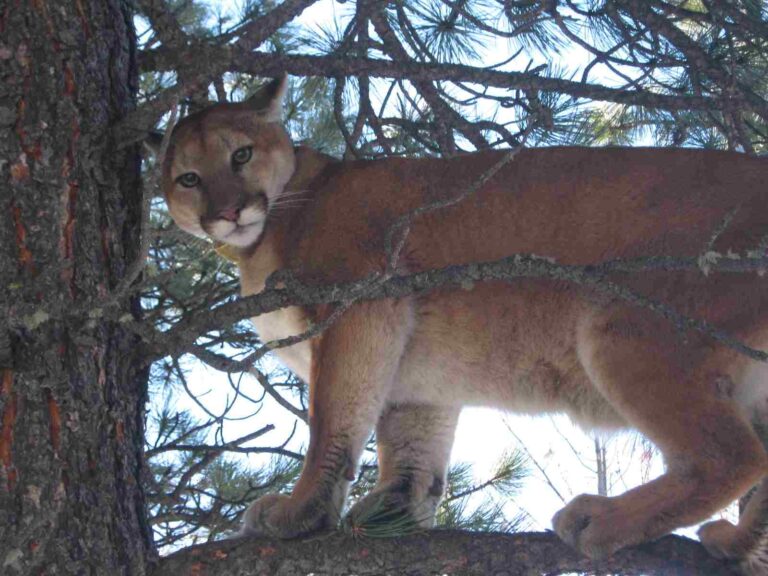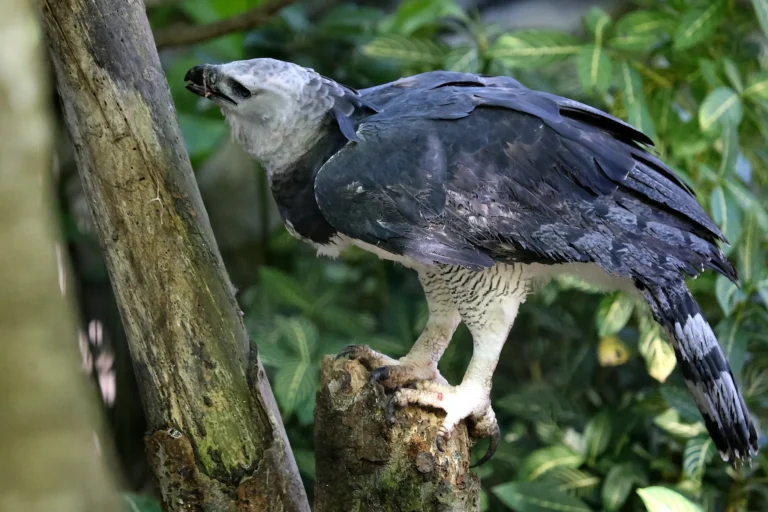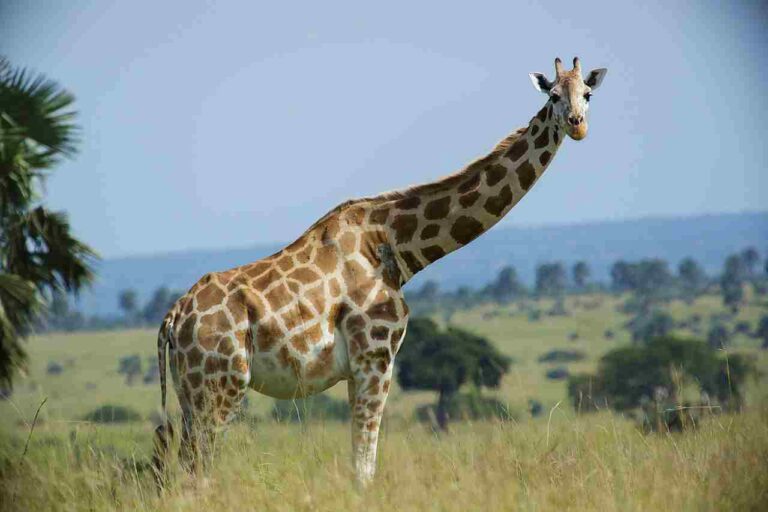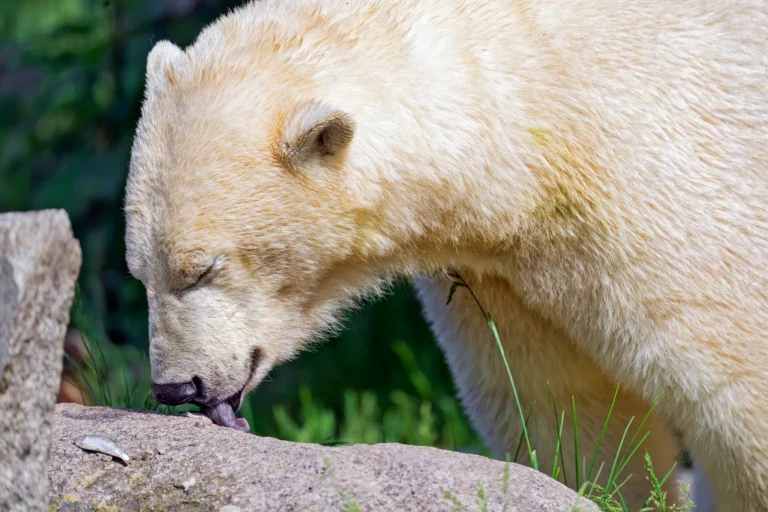Do Wolves Eat Coyotes? 21 Animal Wolves Eat Discussed
Wolves are highly opportunistic predators and will eat coyotes under various circumstances. Despite being fellow canids and potential competitors, wolves have been known to prey on coyotes. This behavior can occur when there is severe competition for prey or a scarcity of their preferred food sources.
Wolves are adaptable hunters and will take advantage of any available food source to survive. While they may not actively seek out coyotes as a primary food source, they will not hesitate to consume them if the opportunity arises. This demonstrates the versatility and adaptability of wolves in their dietary habits.
What Animals do Wolves Eat in the Wild?
Animals which wolves may consume in the wild include; foxes, bears, fish, snakes, lizards, white-tailed deer, birds, elk, squirrels (including prairie dogs), beavers, mice, sheep, bison, raccoons, pigs, bobcats, frogs, cougars, caribou, and badgers, as well as other wolves.
This list shows how versatile wolves are in terms of their dietary adaptability. They may act as top predators, scavengers, and been as cannibals depending on feeding opportunities and availability of resources.
It is important to note that wolves do not prefer other predators or scavengers like foxes, bears, raccoons, raptors and vultures as food sources, but will resort to feeding on them in the absence of alternatives. Wolves also rarely prey on reptiles and amphibians, as they are known to prefer herbivorous mammals like ungulates and rodents.
Below is a discussion of animals which wolves eat in the wild;
1). Foxes (Do Wolves Eat Foxes?)
Foxes are a canid species that coexist with wolves in many habitats. Due to their smaller size, they are vulnerable to predation by wolves. Wolves do not typically prefer foxes as their primary prey or food source. They are more likely to target larger herbivorous mammals like deer or elk.
However, there are certain circumstances where foxes may become prey for wolves. If a fox is injured, sick, or weakened, it becomes an easier target for wolves. Additionally, if there is a scarcity of other food sources, wolves may resort to consuming foxes as a means of survival. In such cases, the pack’s cooperative hunting behavior allows them to take down larger prey, including foxes.
It is important to note that wolves may also scavenge on fox carcasses if they come across them. Wolves are opportunistic feeders and will make use of any available food source, including the remains of other animals. However, this does not necessarily indicate that foxes are a preferred or regular part of a wolf’s diet.
2). Bears (Do Wolves Eat Bears?)
Wolves and bears often share the same habitat, especially in areas with abundant food sources and suitable shelter. While bears are larger and more powerful than wolves, it is important to note that wolves are also capable of preying on bears, albeit in rare circumstances.
In general, wolves do not actively seek out bears as their primary prey. Bears are formidable animals and can defend themselves against wolf attacks. However, there have been documented cases where wolves have successfully preyed on bears, particularly when they utilize their pack’s cooperative hunting behavior.
The predation of bears by wolves is often a result of severe competition for territory and prey. In areas where resources are scarce, such as during periods of food scarcity or in densely populated habitats, wolves may resort to targeting bears as a means of survival. These instances, however, are relatively rare and do not occur frequently.
It is important to emphasize that the predation of bears by wolves is not a common occurrence. Wolves primarily focus on hunting and preying on herbivorous mammals like deer and elk, which are more abundant and easier to capture. Bears, with their size and strength, are not typically preferred targets for wolves.
3). Fish (Do Wolves Eat Fish?)
Wolves are known for their ability to adapt to various environments and food sources. While it is not extremely common, there have been documented cases of wolves consuming fish. This behavior is especially observed in areas where wolves have easy access to water bodies and aquatic ecosystems such as rivers, lakes, and ponds.
The proximity to water bodies provides wolves with the opportunity to resort to fish as an accessible food source. In certain situations, when other prey options are limited or scarce, wolves may turn to fish as a means of survival. This behavior is more likely to occur during periods of food scarcity or when wolves are in densely populated habitats.
It is important to note that fish are not typically a preferred food source for wolves. They primarily focus on hunting and preying on herbivorous mammals like deer and elk, which are more abundant and easier to capture. However, when the opportunity arises and fish are readily available, wolves may take advantage of this resource.
The ability of wolves to consume fish is a testament to their adaptability and opportunistic nature. While fish may not be a staple in their diet, they have the capability to diversify their food sources when necessary. This flexibility allows wolves to survive in a variety of ecosystems and ensures their continued existence.
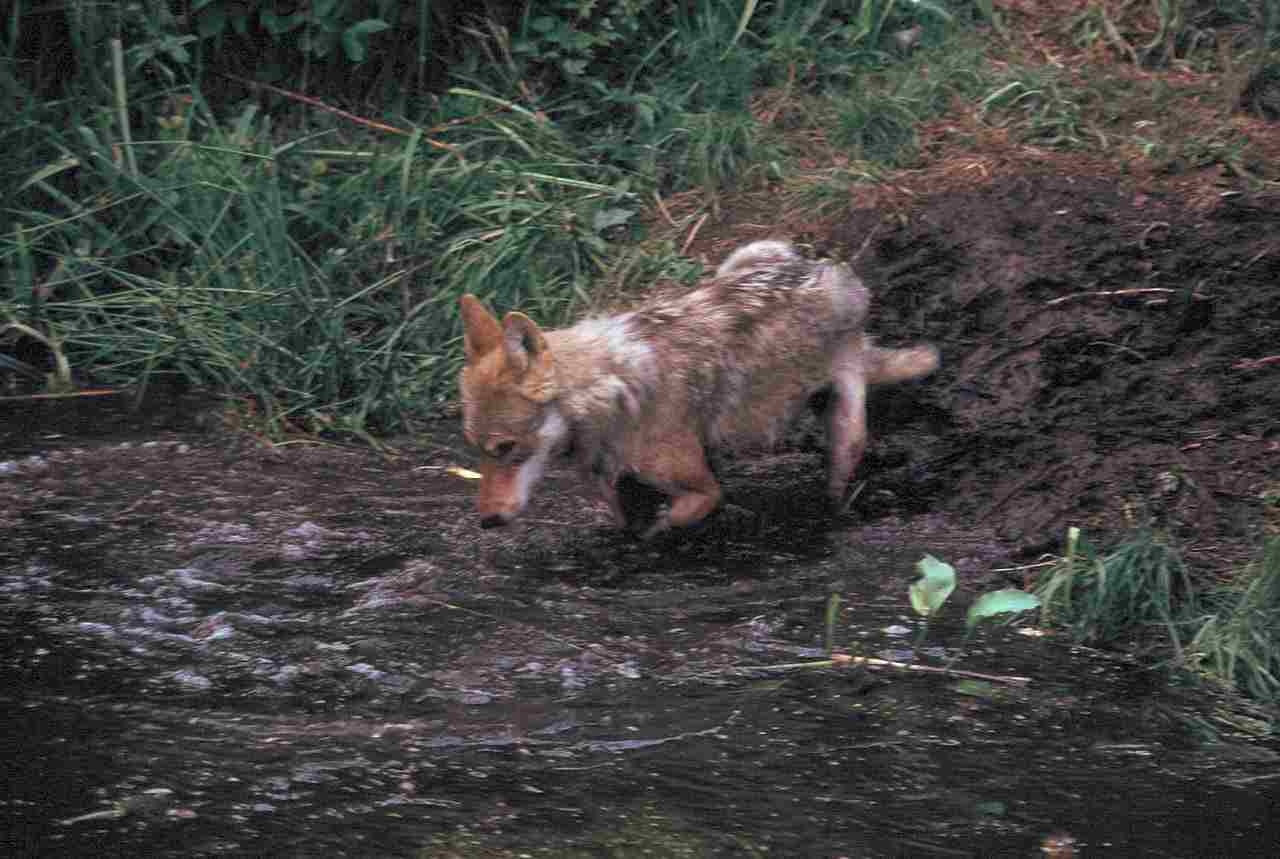
4). Snakes (Do Wolves Eat Snakes?)
Wolves and snakes often share the same habitat, which can lead to occasional interactions between the two species. While wolves do not typically prefer to feed on snakes, they may consume them if the opportunity arises. This is mainly because snakes and wolves may compete for smaller prey, such as mice, which are abundant in their shared environment.
Snakes are not a staple in the diet of wolves, but they can be considered as an alternative food source in certain situations. Wolves are primarily carnivorous and focus on hunting and preying on herbivorous mammals like deer and elk. However, when other prey options are limited or scarce, wolves may turn to snakes as a means of survival.
It is important to note that wolves may also consume other reptiles, such as lizards, if they come across them in their habitat. This opportunistic behavior allows wolves to diversify their food sources and adapt to different environments. While snakes and other reptiles are not a significant part of a wolf’s diet, they serve as a backup option when other prey is not readily available.
The occasional consumption of snakes by wolves highlights their adaptability and opportunistic nature. Wolves are skilled hunters and have the ability to adjust their diet based on the resources available in their surroundings. This flexibility ensures their survival in various ecosystems and contributes to the balance of the food chain.
5). Deer (Do Wolves Eat Deer?)
Deer are arguably the most common prey and preferred food source for wolves. Species like the white-tailed deer are frequently found in the habitats where wolves roam. These herbivorous mammals provide a substantial and nutritious meal for the wolves.
Wolves are skilled hunters that rely on their pack dynamics to successfully hunt deer. They work together to surround and isolate their prey, using their speed, agility, and strategic tactics to bring down the deer. This cooperative hunting behavior allows wolves to take down larger prey that they wouldn’t be able to tackle individually.
The presence of wolves in an ecosystem can have significant effects on the deer population. By preying on deer, wolves help regulate their numbers and prevent overpopulation. This, in turn, benefits the overall health and balance of the ecosystem. It ensures that the deer population doesn’t exceed the carrying capacity of their habitat, which can lead to overgrazing and depletion of resources.
While deer are a primary food source for wolves, they also consume other herbivorous mammals like elk and moose. However, the abundance and accessibility of deer make them a preferred choice for wolves. Their adaptability and hunting prowess allow them to thrive in various environments where deer are present.
It’s important to note that the relationship between wolves and deer is a natural part of the predator-prey dynamic in the wild. Wolves play a crucial role in maintaining the ecological balance by controlling the population of herbivores like deer. This ensures the sustainability of the ecosystem and the survival of other plant and animal species that depend on it.
6). Birds (Do Wolves Eat Birds?)
Wolves are primarily known for hunting and consuming mammals, but they are also opportunistic predators when it comes to birds. While birds may not be their main source of food, wolves have been known to prey on various kinds of birds, including waterbirds like ducks and geese, as well as raptors like hawks, eagles, and owls. In addition, domestic birds like chickens are also vulnerable to wolf predation.
Birds provide a different challenge for wolves compared to their usual prey. They are agile and can take flight, making them harder to catch. However, wolves have been observed using their speed and coordination to successfully capture birds. They may employ tactics such as ambushing or chasing the birds to bring them down.
The availability of birds as a food source for wolves depends on the habitat they inhabit. In areas with abundant bird populations, such as wetlands or areas near bodies of water, wolves may have more opportunities to hunt birds. Additionally, during certain times of the year, when birds are migrating or nesting, they may be more accessible to wolves.
It’s important to note that the predation of birds by wolves is a natural part of the ecosystem. Wolves play a role in controlling bird populations, which helps maintain the balance of the ecosystem. By preying on birds, wolves can prevent overpopulation and its associated impacts on the environment.
7). Elk (Do Wolves Eat Elk?)
Elk, a large type of deer, is a significant prey species that deserves separate discussion from smaller deer species when it comes to wolves’ predation habits. Wolves are known to target elk as a food source, and their interactions with these majestic creatures are fascinating.
Elk, also known as wapiti, are much larger than other deer species, such as white-tailed deer or mule deer. This size difference presents a unique challenge for wolves when hunting elk. Due to their larger stature, elk are more formidable opponents and can pose a greater risk to wolves. However, wolves are highly adaptable predators and have developed strategies to overcome these challenges.
When hunting elk, wolves often rely on their pack dynamics and cooperative hunting techniques. They work together to isolate and pursue individual elk, using their speed, agility, and endurance to their advantage. By coordinating their efforts, wolves can bring down an elk, which can weigh up to 700 pounds (318 kilograms).
The availability of elk as a food source for wolves depends on the region and the size of the elk population. In areas with abundant elk herds, such as national parks or protected areas, wolves may have a more consistent supply of elk to prey upon. However, in regions where elk populations are smaller or fragmented, wolves may need to rely on other prey species to meet their nutritional needs.
It’s important to note that the predation of elk by wolves is a natural part of the ecosystem. Wolves play a crucial role in regulating elk populations, preventing overgrazing and maintaining a healthy balance in the ecosystem. Additionally, the carcasses of elk provide food for other scavengers and contribute to the overall biodiversity of the area.
8). Squirrels (Do Wolves Eat Squirrels?)
Squirrels, being smaller prey, are not a primary food source for wolves. However, wolves have been known to consume squirrels as a supplement to their diet. While squirrels may not provide a substantial amount of nutrition, they can still serve as a valuable source of energy and nutrients for wolves, especially during times when larger prey is scarce.
Wolves are opportunistic hunters and will take advantage of any available food source. This includes smaller mammals like squirrels, which can be found in abundance in many forested areas. Wolves have the ability to adapt their hunting strategies to target smaller prey, using their speed and agility to their advantage.
When hunting squirrels, wolves may employ different techniques compared to hunting larger prey. They may rely on their keen senses of hearing and smell to locate squirrels in trees or on the ground. Once a squirrel is spotted, wolves may use their agility to chase and capture the nimble creatures.
While squirrels may not provide the same amount of meat as larger prey, they can still contribute to a wolf’s overall diet. The consumption of squirrels can help wolves meet their energy requirements and provide essential nutrients. Additionally, hunting smaller prey like squirrels can help wolves practice their hunting skills and maintain their predatory instincts.
It’s important to note that the consumption of squirrels by wolves is not a significant threat to squirrel populations. Wolves play a vital role in maintaining the balance of ecosystems, and their predation on smaller prey helps regulate populations and prevent overpopulation.
9). Beavers (Do Wolves Eat Beavers?)
Wolves are known to hunt in a variety of habitats, including wetlands, where beavers are commonly found. While beavers are not a primary food source for wolves, they can still be targeted as prey. Wolves are opportunistic hunters and will take advantage of any available food source, including beavers.
In wetland areas, beavers construct dams and lodges, creating a suitable habitat for themselves and other wildlife. This makes them an accessible target for wolves, especially during times when larger prey is scarce. Wolves have the ability to navigate through water and are skilled swimmers, allowing them to pursue beavers in their aquatic environment.
When hunting beavers, wolves may employ different strategies compared to hunting larger prey. They may use their keen senses of smell and hearing to locate beavers in and around their lodges. Once a beaver is detected, wolves may use their agility and teamwork to chase and capture the elusive prey.
While beavers may not provide a substantial amount of meat, they can still contribute to a wolf’s diet, providing energy and nutrients. Hunting beavers also allows wolves to practice their hunting skills and maintain their predatory instincts.
10). Mice (Do Wolves Eat Mice?)
Mice are a versatile rodent that can be found in various habitats, including grasslands, deserts, and forests. They are small in size, making them an easy target for predators like wolves. While mice may not be a primary food source for wolves, they are still considered as prey.
In the wild, wolves have a diverse diet and will consume a wide range of animals to meet their nutritional needs. Mice provide a source of protein and nutrients for wolves, especially during times when larger prey is scarce. Wolves are opportunistic hunters and will take advantage of any available food source, including mice.
When hunting mice, wolves may employ different strategies compared to hunting larger prey. Mice are agile and quick, making them challenging to catch. Wolves may use their keen senses of smell and hearing to locate mice in their habitat. Once a mouse is detected, wolves may use their speed and agility to chase and capture the elusive prey.
While mice may not provide a substantial amount of meat, they can still contribute to a wolf’s diet, providing energy and nutrients. Hunting mice also allows wolves to practice their hunting skills and maintain their predatory instincts. It is important to note that wolves do not solely rely on mice for sustenance but rather incorporate them into their overall diet.
11). Sheep (Do Wolves Eat Sheep?)
Sheep are one of the animals that wolves eat in the wild. Wolves are known to have a diverse diet, and sheep are among the species they prey upon. These herbivorous mammals can be found in various habitats, including grasslands, mountains, and forests.
In their natural environment, wolves have been observed hunting and attacking domestic sheep. This can pose a significant challenge for sheep farmers and ranchers, as wolves can cause substantial losses to their livestock. The predation of sheep by wolves has been a long-standing issue in areas where these animals coexist.
Wolves are highly skilled hunters and have developed strategies to target and capture sheep. They often work in packs, which allows them to coordinate their efforts and increase their chances of a successful hunt. Wolves are known for their speed, agility, and endurance, which they utilize to chase down and overpower their prey.
When wolves attack sheep, they typically target the vulnerable individuals, such as lambs or older sheep that may be sick or injured. They use their sharp teeth and powerful jaws to deliver a fatal bite to the neck or throat of the sheep, causing severe injuries or death.
The predation of sheep by wolves has significant ecological implications as well. It can disrupt the balance of ecosystems and impact the livelihoods of farmers and ranchers who rely on sheep for their income. Efforts have been made to implement measures to protect sheep from wolf predation, including the use of guard animals, fencing, and non-lethal deterrents.
12). Bison (Do Wolves Eat Bison?)
Bison, also known as American buffalo, are a large ungulate that wolves do eat in the wild. These massive herbivores can weigh up to 2,000 pounds and are an important part of the ecosystem in North America. Wolves are known to prey on bison, although it is not their primary food source.
Wolves are highly adaptable predators and have been observed hunting bison in areas where their populations overlap. However, bison are formidable animals and can pose a significant challenge for wolves. Their size and strength make them a difficult target, and wolves often target weaker or injured individuals.
When wolves hunt bison, they typically work in packs to increase their chances of success. They use their intelligence and teamwork to isolate a bison from the herd and wear it down through a prolonged chase. Once the bison is exhausted, the wolves will go in for the kill, targeting vulnerable areas such as the throat or hindquarters.
While bison are not a primary food source for wolves, they can provide a substantial amount of meat when successfully hunted. This can be especially important during times when other prey species are scarce. Wolves are opportunistic hunters and will take advantage of any available food source to sustain themselves and their pack.
The predation of bison by wolves has important ecological implications. It helps to regulate bison populations and maintain a healthy balance in the ecosystem. Additionally, the carcasses of bison provide food for other scavengers and contribute to nutrient cycling in the environment.
13). Raccoons (Do Wolves Eat Raccoons?)
Raccoons are an animal that wolves may eat in the wild, although there is a low likelihood of them being a preferred food source. Wolves are highly adaptable predators and will consume raccoons if their preferred food sources are scarce or unavailable. Raccoons are omnivorous and have a varied diet, which includes fruits, nuts, insects, small mammals, and birds. Their opportunistic feeding habits make them potential prey for wolves in certain circumstances.
In areas where raccoons and wolves coexist, wolves may target raccoons as a secondary food source. However, it is important to note that raccoons are not a primary prey item for wolves. Wolves typically prefer larger ungulates such as deer, elk, and bison, which provide a more substantial amount of meat.
When wolves do prey on raccoons, they may take advantage of their intelligence and teamwork to increase their chances of success. Wolves are known for their cooperative hunting strategies, and they may use their pack dynamics to isolate and capture raccoons. The chase and capture of raccoons by wolves can be a challenging endeavor due to the raccoon’s agility and ability to climb trees.
The predation of raccoons by wolves serves an important ecological role. It helps to regulate raccoon populations and maintain a balance in the ecosystem. Additionally, the consumption of raccoons by wolves contributes to nutrient cycling and provides food for other scavengers in the environment.
14). Pigs (Do Wolves Eat Pigs?)
Wild pigs are one of the animals that wolves may eat in the wild. While wolves primarily target larger ungulates like deer, elk, and bison, they are opportunistic predators and will not hesitate to prey on pigs if the opportunity arises. Pigs, both wild and domestic, can become vulnerable to wolf attacks, especially in areas where their natural habitats overlap.
In the wild, wild pigs can be a potential food source for wolves when their preferred prey is scarce or unavailable. Wolves are known for their adaptability and will take advantage of any available food source to sustain themselves. Pigs, with their relatively large size and abundance, can provide a substantial amount of meat for a wolf pack.
Domestic pigs, on the other hand, are more vulnerable to wolf attacks due to their confined and controlled environments. In some cases, wolves may venture into farms or rural areas and target domestic pigs as an easy prey option. These attacks can result in significant losses for pig farmers and can be a cause of concern for livestock owners.
When wolves do prey on pigs, they may employ their cooperative hunting strategies to increase their chances of success. Wolves are highly social animals that hunt in packs, and their teamwork allows them to take down larger prey. The chase and capture of pigs by wolves can be a challenging endeavor due to the pig’s strength and ability to defend itself.
The predation of pigs by wolves serves an important ecological role. It helps to control wild pig populations, which can be destructive to ecosystems if left unchecked. Additionally, the consumption of pigs by wolves contributes to nutrient cycling and provides food for other scavengers in the environment.
15). Bobcats (Do Wolves Eat Bobcats?)
Bobcats are feline fellow carnivores and predators that inhabit various regions of North America. While it is unlikely for wolves to deliberately target bobcats as prey, they may resort to predation if there is competition for food or during times of scarcity. Wolves are known for their opportunistic behavior, and if the opportunity presents itself, they may include bobcats as part of their diet in the wild.
In the natural environment, wolves and bobcats may encounter each other while hunting for similar prey species such as deer or smaller mammals. In such situations, if resources are limited, wolves may view bobcats as potential competitors and may engage in predatory behavior towards them. However, it is important to note that bobcats are agile and elusive creatures, making it challenging for wolves to successfully capture them.
The relationship between wolves and bobcats in the wild is complex and can vary depending on factors such as habitat, prey availability, and population densities. While there have been instances of wolves preying on bobcats, it is not a common occurrence. Wolves primarily focus on larger ungulates like deer and elk, which provide a more substantial food source for their pack.
16). Frogs (Do Wolves Eat Frogs?)
Frogs, being small amphibians, are not typically a significant food source for wolves. However, due to their opportunistic behavior, wolves may consume frogs if the opportunity arises. Frogs can be found in various habitats such as swamplands, forests, and grasslands, making them accessible to wolves in certain regions.
In the wild, wolves primarily focus on larger prey species like deer and elk, which provide a more substantial food source for their pack. Frogs, on the other hand, are relatively small and may not provide enough sustenance to meet the nutritional needs of a wolf pack. Therefore, it is uncommon for wolves to actively seek out frogs as prey.
However, wolves are known to adapt their diet based on availability and scarcity of resources. In situations where other food sources are limited, wolves may resort to consuming smaller prey like frogs. This opportunistic behavior allows them to survive during times when their preferred prey is scarce.
It is important to note that the consumption of frogs by wolves is not a common occurrence. Wolves are more likely to focus on larger, more abundant prey that can sustain their pack. While frogs may be present in the same habitats as wolves, they are not a significant part of their diet.
17). Cougars (Do Wolves Eat Cougars?)
Cougars, also known as mountain lions or pumas, are large predatory cats that inhabit the same ecosystems as wolves. Due to their similar habitats and overlapping territories, cougars and wolves often compete for resources such as prey and territory. However, it is rare for wolves to actively hunt and consume cougars as part of their diet.
In some instances, a wolf pack may ambush a cougar and engage in a confrontation. While wolves are known for their pack coordination and hunting strategies, cougars are formidable predators themselves and can put up a strong defense. Sometimes, wolves may manage to kill a cougar during these encounters, but they may not always feed on the carcass. This behavior is not common and is more likely to occur when other food sources are scarce.
The primary reason why wolves do not typically eat cougars is their size and strength. Cougars are large and powerful animals, often weighing more than 100 pounds. Taking down a cougar requires significant effort and poses a risk to the wolves themselves. Additionally, cougars are agile and can escape from potential threats, making them less vulnerable to wolf predation.
While cougars are not a common food source for wolves, it is important to note that wolves are opportunistic predators. They adapt their diet based on the availability of prey species in their environment. In situations where other food sources are limited, wolves may resort to consuming cougars as a means of survival.
18). Caribou (Do Wolves Eat Caribou?)
Caribou, also known as reindeer, are a species of deer that inhabit the northern regions of North America, Europe, and Asia. While wolves are known to prey on various species of deer, including white-tailed deer and mule deer, their interaction with caribou is unique.
Wolves are highly skilled hunters and rely on pack coordination to take down large prey. Caribou, with their impressive size and strength, present a formidable challenge for wolves. However, in certain circumstances, wolves have been observed hunting and consuming caribou.
During the winter months, caribou herds migrate across vast distances in search of food and suitable habitat. This migration pattern makes them vulnerable to predation by wolves. As the caribou move through the snow-covered landscape, their movements become slower and more predictable, making it easier for wolves to track and ambush them.
When a wolf pack successfully targets a caribou, they employ their strategic hunting techniques to bring it down. By working together, the wolves can exhaust the caribou and separate it from the herd, increasing their chances of a successful kill. Once the caribou is taken down, the wolves waste no time in feeding on the carcass, ensuring they make the most of this valuable food source.
It is important to note that the predation of caribou by wolves is not as common as their predation on other deer species. Caribou have evolved to be highly adapted to their environment, and their herding behavior and vigilance make it challenging for wolves to successfully hunt them. However, in certain circumstances, when the conditions are favorable and the opportunity arises, wolves will not hesitate to take advantage of a caribou as a food source.
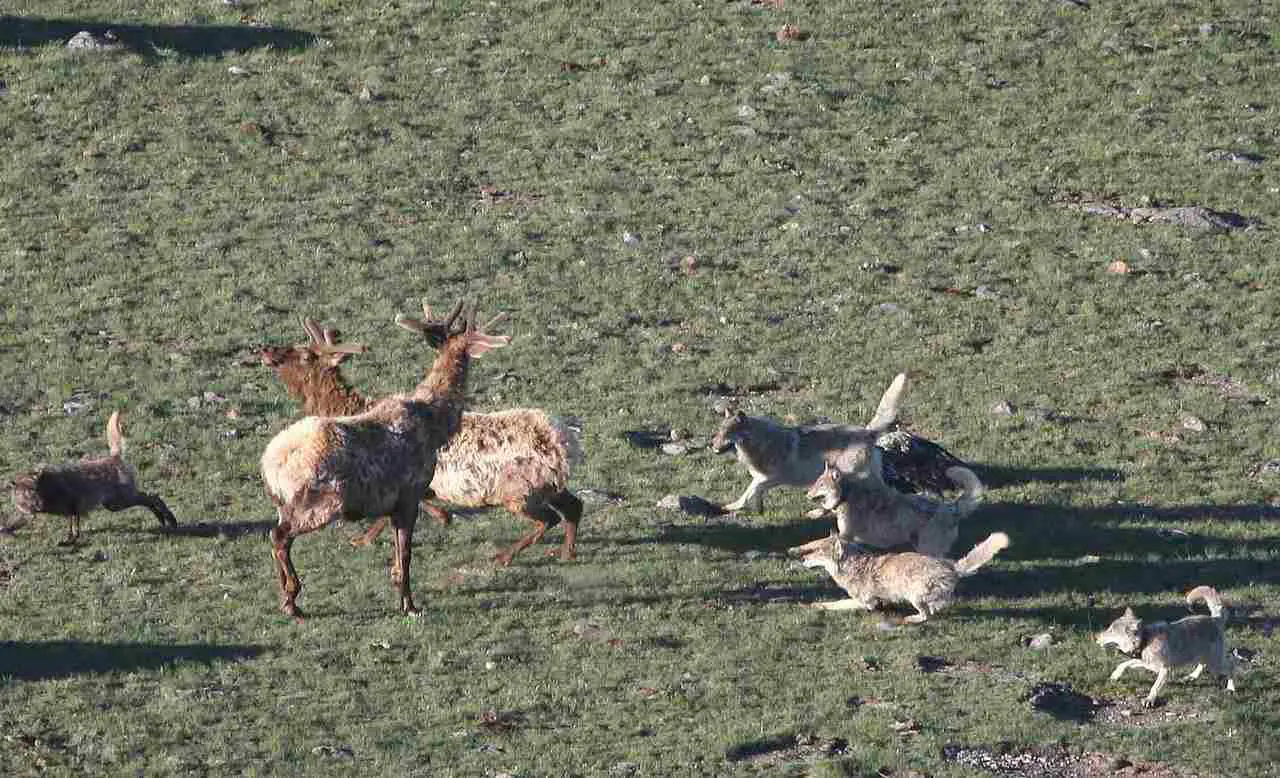
19). Other Wolves (Do Wolves Eat Other Wolves?)
Cannibalism among wolves is not very common, but as opportunistic predators, they will not hesitate to feed on dead wolves if the opportunity arises. While it may seem surprising that wolves would eat their own kind, there are several factors that can lead to this behavior.
In times of scarcity, such as during harsh winters or when prey is scarce, wolves may resort to cannibalism as a means of survival. When food sources are limited, wolves will scavenge on carcasses, including those of other wolves. This behavior is driven by the instinct to maximize their chances of survival and ensure the pack’s overall well-being.
In addition to scarcity, territorial disputes can also lead to cannibalism among wolves. When two wolf packs come into conflict over territory or resources, the dominant pack may kill and consume members of the rival pack. This serves as a way to eliminate competition and assert dominance over the territory.
It is important to note that cannibalism among wolves is not a regular occurrence and is typically a result of specific circumstances. Wolves are highly social animals that rely on cooperation and pack dynamics for survival. In healthy wolf populations with abundant prey, cannibalism is rare.
Overall, while wolves are known to be formidable predators, their tendency to eat other wolves is limited to certain situations. Cannibalism is a behavior that arises out of necessity rather than preference, and wolves primarily rely on other prey species for their sustenance.
In the wild, wolves have a diverse diet that includes various animals, such as deer, elk, and smaller mammals. Their preference for live prey and their ability to hunt in coordinated packs make them highly efficient hunters. Cannibalism among wolves serves as a reminder of their adaptability and resourcefulness in challenging environments.
20). Prairie Dogs (Do Wolves Eat Prairie Dogs?)
Prairie dogs are a species of ground squirrel that inhabit prairies and desert areas. These small mammals are known for their complex social structures and intricate burrow systems. While prairie dogs primarily feed on grasses and plants, they can also fall prey to predators, including wolves.
In the wild, wolves are opportunistic predators and will target a variety of animals for their sustenance. Prairie dogs, with their abundance in certain habitats, can become a part of a wolf’s diet. Wolves are skilled hunters and their ability to coordinate and work together as a pack gives them an advantage when hunting small prey like prairie dogs.
When hunting prairie dogs, wolves use their keen senses of smell and hearing to locate their burrows. They may dig into the burrows or wait patiently outside for the prairie dogs to emerge. Once a prairie dog is caught, the wolf will quickly dispatch it with a swift bite to the neck.
It’s important to note that while prairie dogs may be a part of a wolf’s diet, they are not the primary prey. Wolves typically target larger ungulates like deer and elk for their main source of food. Prairie dogs are more likely to be consumed by wolves when other prey options are scarce or when they are readily available in their habitat.
21). Badgers (Do Wolves Eat Badgers?)
Though not very common because of their elusive nature and underground burrows, badgers are an animal which wolves eat in the wild. Wolves are opportunistic predators and will target a variety of animals for their sustenance, including badgers.
Badgers are known for their strong digging abilities and live in complex underground burrow systems. These burrows provide them with protection and a safe place to raise their young. However, wolves have been known to dig into badger burrows in order to access their prey.
When hunting badgers, wolves use their keen senses of smell and hearing to locate their burrows. They may dig into the burrows or wait patiently outside for the badgers to emerge. Once a badger is caught, the wolf will quickly dispatch it with a swift bite to the neck.
It’s important to note that badgers are not a primary food source for wolves. Wolves typically target larger ungulates like deer and elk for their main source of food. However, when other prey options are scarce or when badgers are readily available in their habitat, wolves will not hesitate to include them in their diet.
Do Wolves Eat Fruits? Assessing the Omnivorous Tendencies of Wolves
Wolves are primarily known as carnivores, but there have been documented cases of them consuming fruits to supplement their diet. While this behavior is not as prominent as in omnivorous animals like foxes and coyotes, it does suggest that wolves have some omnivorous tendencies.
Studies have shown that wolves occasionally consume fruits, especially during certain seasons when fruits are abundant. This behavior is believed to provide additional nutrients and variety to their diet. However, it is important to note that fruits are not a significant part of a wolf’s diet and they primarily rely on meat for sustenance.
The consumption of fruits by wolves is not a common occurrence and is not observed in all wolf populations. It seems to be more prevalent in areas where fruits are readily available, such as forests with a diverse range of plant species. Wolves may consume fruits such as berries, apples, and melons when they come across them during their hunting or scavenging activities.
It is worth mentioning that the consumption of fruits by wolves is not a recent discovery. Indigenous communities and wildlife researchers have long observed this behavior in certain wolf populations. However, it is important to understand that this behavior does not make wolves true omnivores. Their diet primarily consists of meat, and fruits are only consumed occasionally and in small quantities.
FAQs
1. What do Wolves Eat in Yellowstone?
What do wolves eat in Yellowstone? Wolves in Yellowstone National Park primarily feed on large ungulates such as elk, deer, and bison. These herbivores make up the majority of their diet, providing the necessary nutrients and energy for the wolves to survive. However, wolves are opportunistic hunters and will also prey on smaller mammals like beavers and rabbits when the opportunity arises.
They are known to scavenge on carcasses of animals that have died from natural causes or other predators. This diverse diet allows wolves to adapt to the changing availability of prey in their environment.
2. Do Wolves Eat Their Young?
Wolves do not engage in filial cannibalism, meaning they do not eat their own young. This behavior is not observed in wolf populations. However, it is important to note that wolves can be cannibalistic towards adult wolves. In cases where an adult wolf dies, other wolves may scavenge on the carcass. This behavior is more opportunistic in nature rather than a deliberate act of predation.
Wolves are known to be social animals that live in packs, and they rely on cooperation and mutual care for the survival of the group. The young are highly valued and are nurtured and protected by the entire pack. This strong bond within the pack ensures the survival and well-being of the young wolves.
3. Do Wolves Eat Their Dead?
Yes, wolves can exhibit cannibalistic behavior towards their dead. When an adult wolf dies, other wolves in the pack may scavenge on the carcass. This behavior is more opportunistic in nature rather than a deliberate act of predation. Wolves are known to be highly adaptable and resourceful when it comes to finding food, and if a dead wolf is available, they may take advantage of it.
However, it’s important to note that cannibalism among wolves is not a common occurrence. Wolves primarily rely on hunting and consuming live prey for their sustenance. Cannibalism is more likely to happen in situations where food is scarce or when there is a lack of other available food sources.
The reasons behind cannibalism in wolves are not fully understood, but it may be related to factors such as competition for resources, dominance within the pack, or the need to eliminate potential threats. It’s also possible that cannibalism serves as a way for wolves to recycle nutrients and minimize waste.
4. Do Wolves Eat Hawks?
While it is not very common for wolves to eat hawks, they may occasionally prey on them. Hawks have a flight advantage that makes it difficult for wolves to catch them. Wolves are more likely to target larger prey that they can overpower and bring down on the ground.
However, in certain circumstances where hawks are injured or unable to fly, wolves may take advantage of the opportunity and consume them. This behavior is more opportunistic rather than a regular part of their diet. Wolves primarily rely on hunting and consuming larger mammals for their sustenance.
5. Do Wolves Eat Dead Animals?
Wolves are known to scavenge on dead animals, but it is not their primary source of food. They are opportunistic feeders and will take advantage of a carcass if they come across one. However, wolves are more inclined to hunt and kill their own prey rather than rely on scavenging. Scavenging is more common during times of scarcity or when prey is scarce.
In such situations, wolves may scavenge on the remains of larger mammals, such as elk or bison, that have died from natural causes or other predators.
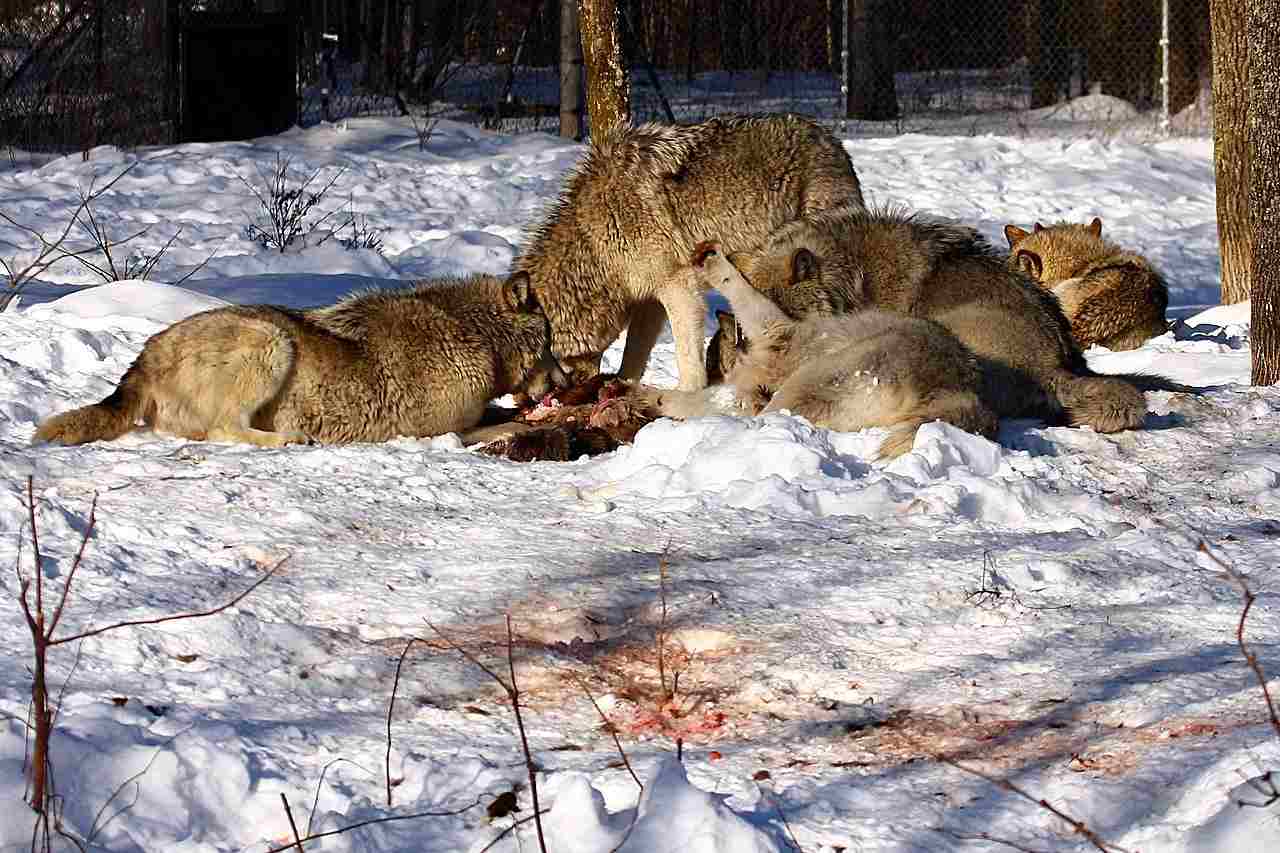
6. Do Wolves Eat Owls?
Yes, wolves do eat owls, but it is not a common occurrence. Wolves are primarily carnivorous and their diet consists mainly of large ungulates such as elk and deer. However, in certain circumstances, wolves may opportunistically prey on smaller animals like owls. This usually happens when other food sources are scarce or during times of extreme hunger.
Owls are not a preferred food source for wolves, but if the opportunity presents itself, they may take advantage of it. It is important to note that this behavior is not typical and owls are not a significant part of a wolf’s diet.
7. Do Wolves Eat Their Prey Alive?
Wolves typically do not eat their prey alive. They have evolved to be efficient hunters and will try to kill their prey quickly to reduce the difficulty and risk of feeding. However, there are instances where wolves may eat their prey alive if their initial efforts to kill the prey early are not successful.
This is more likely to occur when dealing with larger prey that may require more time and effort to bring down. While it is not a common behavior, it highlights the adaptability of wolves in challenging circumstances.
8. Do Wolves Eat Eggs?
Yes, wolves eat eggs.
Wolves are not very choosy when it comes to their diet and will eat eggs if they can reach them. They have been known to consume waterfowl eggs and any other eggs they can find. While eggs may not be a staple in their diet, wolves are opportunistic hunters and will take advantage of any available food source. This includes eggs that are accessible to them.
So, if a wolf comes across a nest of eggs, it is possible that they will consume them. However, it is important to note that this is not very common.
9. Do Wolves Eat Eagles?
Yes, wolves have been known to eat eagles, but it is a very rare occurrence. Wolves are opportunistic hunters and will take advantage of any available food source, including birds of prey like eagles.
However, eagles are not a preferred or common prey for wolves. They are more likely to target smaller mammals like rabbits or deer. So while it is possible for a wolf to eat an eagle if the opportunity arises, it is not a regular part of their diet.
10. Do Wolves Eat Cats?
Yes, wolves have been known to eat various species of cats, including domestic cats, bobcats, and cougars. However, it is important to note that this is not a common occurrence or a preferred food source for wolves. Wolves are primarily carnivorous and tend to target larger prey such as deer or elk.
While they may opportunistically consume cats if the opportunity arises, it is not a regular part of their diet. Wolves typically prefer to hunt and feed on animals that provide a higher caloric intake.
